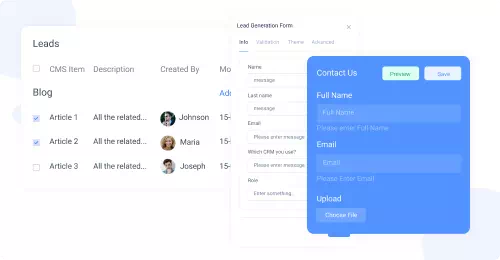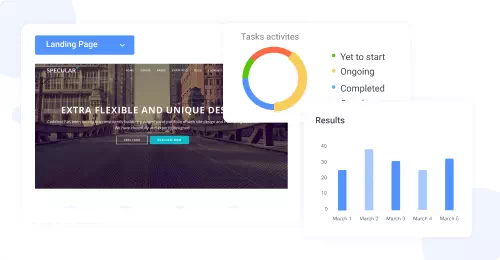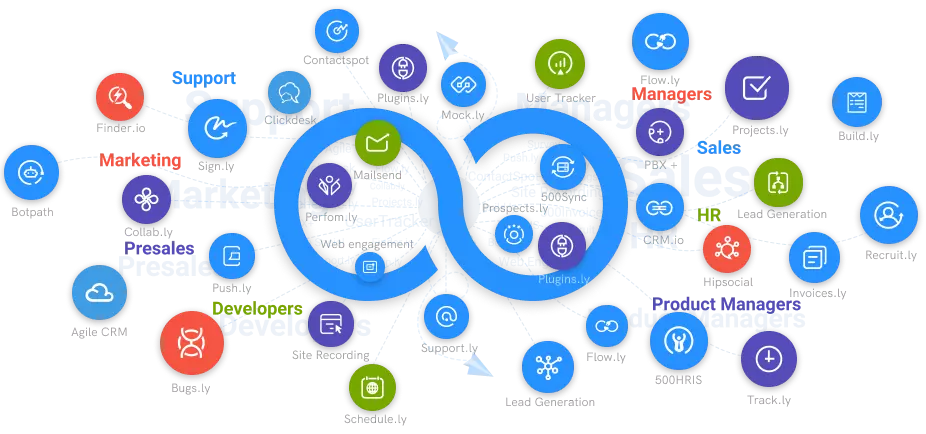What do You Need Before Creating a Landing Page?
One of the first steps in creating a successful landing page is to plan out the content and design your services ahead of time
#1
Create unlimited websites and landing pages using the visual drag-and-drop builder with no code
#2
Add unlimited domains, web pages get free SSL certificates, and built-in SEO
#3
Free SSL Certificate
#4
Improve page rankings with built-in SEO tool, NinjaSEO
#5
Choose from a number of pre-built templates to build fast, responsive websites
#6
Easy & Fast to Build
#7
Increase your web page loading speed with edge servers located in 6 locations
#8
100% Personalization
#9
Unbelievable pricing - the lowest you will ever find
#10
Everything your business needs - 50 apps, 24/5 support and 99.95% uptime
Creating a landing page for your business is a difficult task. It will be much easier if you take the time to undertake detailed background research before commencing the design process. One of the first steps in creating a successful landing page is to plan out the content and design your services ahead of time. There are a few things to consider before you get started:
The Buyer Persona
Buyer personas are fictitious representations of your ideal customers. It's possible that they're based on current customer information and market research. When done correctly, they can give you valuable insight into your customers' ideas and behaviors, allowing you to generate the most beneficial content for them

When developing a landing page based on market research, it's crucial to narrow down the focus (if you have more than one). If you try to adapt your landing page content to a variety of personalities, it will almost probably not resonate with all of them, reducing your conversion possibilities. When you concentrate your efforts on a single persona, your efforts will be much more targeted, which will increase your conversion chances. It is advisable to be niche and concentrated in this situation than trying to appeal to the masses.
The Offer
Aside from the items or services that a business sells, an offer is anything intended to add value to its website visitors. A free e-book, webinar, tip sheet, comparative guide, or anything else downloadable and helpful about the business you're in maybe the offer. It should correspond to a specific pain point that your buyer persona is dealing with, as well as their stage in the Buyer's Journey (explained below).
The Buyer’s Journey
The Buyer's Journey is the process of research that a potential buyer goes through before making a purchase. The three stages are the awareness stage, the deliberation stage, and the decision stage. Different types of material should be offered for each stage of the journey to assist customers in progressing from one level to the next. The specifics for each are as follows:
Awareness Stage
In the awareness stage, a visitor has shown signs of a potential problem or opportunity but is unable to recognize it. This individual is conducting an extensive study to determine what is causing their problems and what is causing them. Content such as e-books, white papers, and guidelines can be used to develop and target people at this level
Consideration Stage
A prospect in the contemplation stage has clearly defined their problem or opportunity and now wants to know how they can solve it. Comparison white papers, webinars, and videos are examples of the types of material you should generate for people at this step of the Buyer's Journey.
Decision Stage
Prospects in the Decision Stage, also known as the Intent Stage, are aware of their solution plan and approach. This is the most crucial step in the funnel because it is at this point that they are ready to commit to a solution. They're performing research and trying to narrow down the list of vendors to a select few at this point in the process before making their ultimate pick. At this point, providing them with case studies, demos, and product information might be a good idea.
Promotional Tips
Once you've finished developing a landing page, your work isn't done. Your work has only just begun. What was the point of spending all that effort and money on a marketing campaign if no one saw your landing page? Here are a few pointers on how to promote your landing page:
CTAs
CTAs, as previously said, is an excellent approach to promote the information on a landing page. Remember that the CTA should be in sync with the material it's on as well as the landing page. In order to drive conversion, these buttons should appropriately depict the call-to-action that is being made. People are more likely to convert if these assets are well-coordinated. Place these communication tools on high-traffic site pages that are related to the offer, as well as in blog entries that support the offer
Email is an excellent technique to promote your landing page because it ensures that your offer does not get lost in the shuffle. Rather than sending an email to the entire database, send it to a specific list. The more specific the list, the more likely it is that people will convert. Many elements of the landing page can be repeated in emails with little effort, and in many situations, they can be reused virtually entirely. The lead-capture form, the benefits of joining up, and a call to action are frequently included.
Social Media
As you're certainly aware, social media is a fantastic tool for spreading the word about your content and business - but using every network available isn't necessarily the best option. It's critical to understand which platforms will best serve your goals and which sites you should avoid at all costs. Choose only a few venues to market your online material on those you know the personas you're attempting to reach us. If none of your characters are known to visit Facebook on a regular basis, don't spend all of your time promoting content there. Think about where they could go instead.
Analyzing the Results
Once your campaign is up and running and traffic is flowing in, it's critical that you don't just sit back and watch the show without checking in on your results. Interact with the results of your landing pages frequently enough to get a sense of how well they're performing, but not so much that they break down. Long-term statistics and projections are always preferable to day-to-day traffic and conversion rates, which can fluctuate a lot and don't give you a solid indication of how your site will perform in the long run.

You must consider a few factors when analyzing your landing page.
- Consider what has occurred in the last several months or even weeks that could have influenced your offer, and ask yourself, ""Does my offer continue to perform well month after month?""
- If you have a number of different landing pages for different offers, compare them to see if you can spot a pattern as to why some are performing better than others. Looking at the design and style of each landing page until you locate one that has shown to be particularly effective is one method to achieve this. The features that make it so successful can then be applied to your other offers to determine if they work as well.
- If you market and optimize your landing page in a way that is targeted to the demands of your audience, you can expect to obtain more conversions.
When making changes to your Landing Pages (e.g., copy, pictures, form fields), make one change at a time and test it thoroughly. You may determine whether or not the time it takes for your page to load is due to server issues or high traffic by looking at how long it takes. Furthermore, if you have numerous updates on the same page and one of them isn't working, you can figure out which one is the most effective and use that information in the future.





